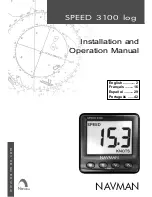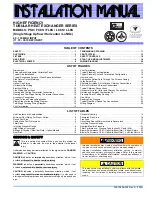
Receiver Mode
R&S
®
ESRP
125
User Manual 1175.7445.02 ─ 08
If the scan uses the detector stipulated by the specifications, the peak list already pro-
vides the final measurement data.
Data Reduction using the Peak List
EMI measurements may involve much time because the time constants of up to 160
ms prescribed by the standard for the quasipeak weighting lead to long measurement
times per each value. In addition, some standards stipulate procedures for finding local
EMI maxima such as shifting the absorbing clamp, variation of the test antenna height
and rotating the DUT. Measuring with quasipeak weighting at each frequency and for
each setting of the test configuration would lead to unacceptably long measurement
times. For this reason, a method is used which reduces the time-consuming measure-
ments to a minimum with an optimum reliability of detection.
The interference spectrum is first pre-analyzed in a fast prescan to optimize the dura-
tion of the measurement. Data reduction follows so that the time-consuming final mea-
surement is performed only at critical frequencies.
Several data reduction methods are used:
●
Generating subrange maxima (search method "Subranges").
The whole frequency range is divided into equidistant frequency subranges. A
selectable number of subrange maxima are determined for each subrange. In the
final measurement, the interference spectrum is further analyzed at frequencies
with the highest interference level of a frequency subrange.
1 = Subrange
2 = Subrange maximum
3 = Limit line
●
Determination of a specific number of peak values relative to the limit lines with the
level values being independent of their frequency spectral distribution (search
method "Peaks").
Determining the level maxima irrespective of their distribution in the frequency
spectrum is suitable for measurement regulations that demand determination of the
relatively highest level irrespective of the distribution in the measured frequency
range, e.g. FCC.
If the prescan is performed in parallel with several detectors, typically Peak and Aver-
age, the maxima are determined separately for the two detectors so that the distribu-
tion of narrowband and wideband sources of interference can be taken into account.
For example, the frequency of the maximum determined with the average detector can
Measurements and Result Displays
















































